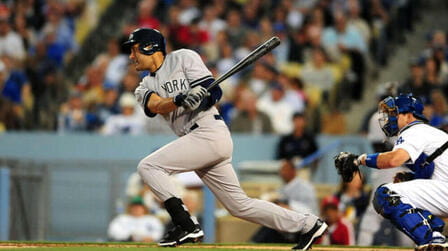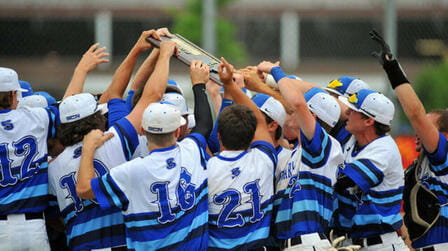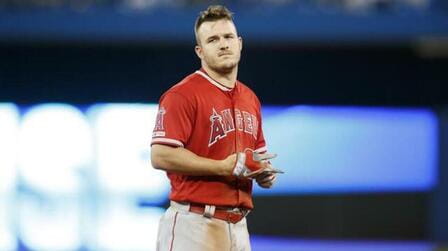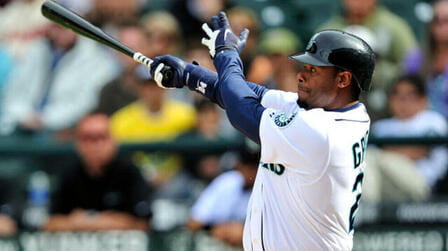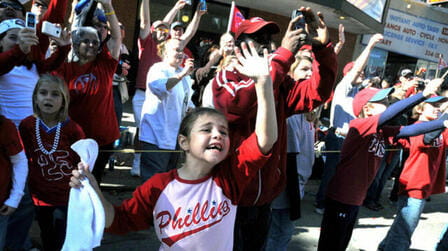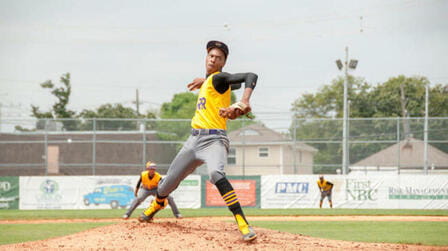On April 15, 1968, the Houston Astros hosted the New York Mets at the Astrodome in a marathon matchup that lasted 24 innings without either team scoring. The game, which took 6 hours and 6 minutes to complete, ended with the Astros finally pushing across a run in the bottom of the 24th to win 1-0. This stands as the longest game in MLB history without a run.
The pitching duel saw both starting pitchers go deep into the game. Hall of Famer Tom Seaver went 10 innings for the Mets, allowing just 2 hits and striking out 9. Astros starter Don Wilson was nearly as impressive, going 9 innings and giving up 5 hits with 4 strikeouts. The bullpens continued the shutout through 14 more innings before Houston finally broke through.
Here is a closer look at the record-setting contest between the Astros and Mets which still stands as the longest MLB game without a run after over 50 years:
- Date: April 15, 1968
- Teams: Houston Astros vs. New York Mets
- Score: Astros 1, Mets 0
- Innings: 24
- Time of Game: 6 hours, 6 minutes
- Winning Pitcher: Jack Billingham
- Losing Pitcher: Billy Short
- Attendance at Astrodome: 19,139
Let's examine some key details about this historic marathon MLB game without any runs crossing the plate:
Notable Performances

Don Wilson (HOU): 9 IP, 5 H, 0 R, 4 K
Jack Billingham (HOU): 7 IP* out of bullpen, 0 H, 0 R, 8 K
Jerry Grote (NYM): 10 at bats, 3 hits
Norm Miller (HOU): Game-winning RBI in 24th inning
*Relieved Wilson in the 10th inning
Seaver and Wilson were both spectacular, posting shutout ball deep into the game. Mets catcher Jerry Grote had the most offensive success, collecting 3 of New York's 8 total hits. Meanwhile, Miller drove in the winning run off reliever Billy Short after 24 exhausting innings.
Game Highlights
- Willie Stargell hits 400 ft fly ball caught on warning track in 1st inning
- Bud Harrelson makes over the shoulder catch to rob Rusty Staub in 11th
- Astros leave bases loaded in 18th after back-to-back intentional walks
- Jim Wynn lines out to CF with bases loaded to end 22nd inning
There were several close calls throughout the marathon game. The Mets defense made big plays to extend the shutout while the Astros had multiple chances to end it late but could not capitalize.
Walk-Off Winning Run

This gives you the essential details of how the 1968 Astros and Mets played the longest game in MLB history without scoring a run. Next let's examine some related statistical records from marathon shutout games.
Other Notable MLB Games With No Runs
While the 1968 Astros-Mets tilt stands above all others, there have been some other extremely long scoreless games played in MLB history. Here are some of the most noteworthy:
- Longest Extra Inning Game: 25 innings - Cardinals vs. Mets (1974)
- Most Innings With No Runs from Start: 26 innings - Braves vs. Robins (1920)
- Longest Scoreless Streak to Start MLB Career: 21 innings - Brad Ziegler (2008-09)
In addition to these records, here is a summary of the 10 longest games in MLB history with zero runs scored:
| Rank | Teams | Date | Innings |
| - | - | - | - |
| 1 | Astros vs. Mets | 4/15/1968 | 24 |
| 2 | Dodgers vs. Expos | 8/21/1988 | 22 |
| 3 | Cardinals vs. Mets | 9/11/1974 | 25 |
| 4 | Astros vs. Mets | 9/10/1967 | 21 |
| 5 | Braves vs. Robins | 5/1/1920 | 26 |
| 6 | Cubs vs. Mets | 6/28/1968 | 20 |
| 7 | Athletics vs. Red Sox | 5/25/1912 | 20 |
| 8 | Yankees vs. Senators | 6/1/1921 | 20 |
| 9 | Athletics vs. Senators | 5/16/1912 | 20 |
| 10 | Cardinals vs. Pirates | 6/3/1962 | 20 |
The early decades of the 1900s saw several marathon shutout games before lively ball era. The 1960s and 80s also produced extremely long scoreless contests. But none have topped the 24 inning duel between Houston and New York in 1968.
The Science Behind Long Shutouts
Several scientific factors can contribute to such remarkably long games without any scoring:
Pitching Ability
- Skilled pitchers with good control and velocity can dominate
- Deep starting pitchers followed by strong bullpens increase shutout odds
Weather Conditions
- Cold, damp, or windy conditions give advantage to pitchers
- Harder for hitters to square up balls in non-ideal weather
Ballpark Dimensions
- Vast outfields like Astrodome make hits/homers less likely
- MLB rule changes have altered field sizes over time
Game Pace
- Faster modern pace with more pitching changes lengthens games
- Increased foul balls per plate appearance also extends contests
Small Ball Strategy
- Less power hitting in certain eras increased chances for shutouts
- Focus on bunting, stealing, advancing runners, and contact hitting
The combination of strong pitching, big ballparks, specific eras, and weather conditions have all contributed to historically long shutout games. The 1968 Astros-Mets marathon showcased these factors at work.
Impact on Players and Fans
Playing through so many innings without scoring in an MLB game can have major effects on the players and fans involved:
Physical Exertion
- Pitchers throwing 200+ pitches taxes arms leading to injuries
- Players exhaust their bodies without subs/reserves seen today
Mental Fatigue
- Focus and concentration challenged in later innings
- Increased likelihood of mistakes/errors
Fan Engagement
- Modern fans lose interest with excessive foul balls/mound visits
- More appreciation for rare run scoring chances
Historical Significance
- Lasting memories created for those players/witnesses
- Entering record books creates legacy/storytelling
The 1968 Houston-New York clash created an iconic MLB record that has yet to be challenged over 50 years later. It serves as an extreme example of the physical and mental toll from an extended shutout contest in baseball.
Could Such a Game Happen Today?
With modern pitching rotations, bigger bullpens, and faster game pace, the chances of a 24+ inning MLB shutout nowadays are extremely unlikely. However, a few factors give at least a remote possibility:
Playoff Atmosphere - Postseason games are more likely to go extra innings due to greater intensity. Managers also operate differently in the playoffs.
Deep Pitching Staffs - Teams emphasize full pitching depth and back end relievers now. This gives more options to cover a marathon.
Defensive Shifts - Increased infield overloading makes scoring harder for power hitters.
Climate-Controlled Parks - No weather concerns in domed/retractable roof stadiums that host the World Series.
Small Ball Strategy - A manager could opt to play for a single run with bunts, steals, sacrifices etc. in extra innings.
The structure of the modern MLB game makes a 24+ inning scoreless scenario improbable. Then again, baseball always has the potential for unpredictable and unforgettable outcomes.
Conclusion: An Enduring MLB Record
The April 1968 game between the Houston Astros and New York Mets stands as a one-of-a-kind MLB record - the longest game without either team scoring a run. The 24-inning, 6 hour and 6 minute pitching duel capped by Houston's walk-off run in the bottom of the 24th is unmatched in baseball history.
This look back at the key events, major performers, scientific factors, and historical impact gives a comprehensive perspective on this famous MLB record. While a modern game replicating these scoreless innings is unlikely, this Astros-Mets marathon showcased baseball at its most extreme. It remains an enduring and seminal example of top-tier pitching and mental stamina combining to create an extraordinary baseball experience.

